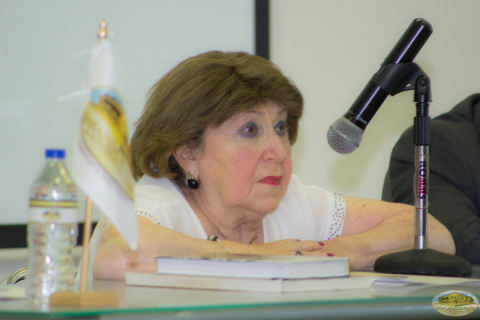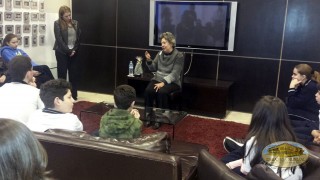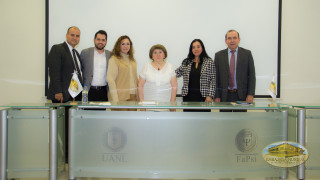Teaching the Holocaust as a paradigm of genocide
Under the Program Educating to Remember, the Global Embassy of Activists for Peace (GEAP) in Mexico, held an educational forum at the Psychological Department (FsPsi) of the Autonomous University in Nuevo Leon (UANL), to celebrate the International Day in Memory of the Victims of the Holocaust.
The forum was held with the aim of creating awareness in present generations on the factures that led to different genocides and the circumstances that made them possible as well as the consequences and repercussions that they have left in humanity.
“Remembering the Holocaust: educating for a better future” is the 2017 theme. The Holocaust constitutes a historical moment where many lessons on the danger of extremism and the prevention of genocide can be found.
It is time to create awareness
This commemorative event counted with the presence of special guests; among them, Dolly Hirsh, survivor of the Holocaust; Magaly Cardenas, academic subdirector of the PsychologyI Department of UANL; Francisco Guerra, national coordinator of the GEAP in Mexico; and vice coordinator of the GEAP, Norma Trejo.
With welcoming words, Magaly Cardenas opened the event and expressed that it is important to create awareness regarding situations as those lived by people during World War II.
“I would like for us to conserve in our mind and our heart the testimony that we are going to listen to today, and we can actively participate for world peace”, said Cardenas.
A real story
Next, Dolly Hirsh told a brief part of her history. She began from June 24th, 1940 ( the day she was born in the Vilna ghetto) until the day the Jews were liberated in 1945.
Hirsch said:
“I am only going to share a tremendous story that happened to me, which is not a story, not a book that was lent to me to read. This destroyed and killed all my family. I was just a child that did not now any other way of life. This happened to me, a human being, not an animal.”
Transmitting a positive message
Norma Trejo, vice coordinator of the GEAP in Mexico, during her participation said that we have to be active in every field to be able to transmit a message to create a positive effect in human beings and guide every person who needs it.
100 students attended the event, which allowed them to learn about the consequences of intolerance, hate, discrimination, prejudices, stereotypes, lack of respect for life and human dignity.



